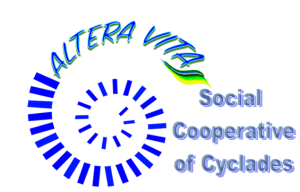Introduction
SMARTOUR E-Course: Summary of All Modules
Introduction:
According to the European Commission, smart tourism “responds to new challenges and demands in a fast-changing sector, including the evolution of digital tools, products and services; equal opportunity and access for all visitors; sustainable development of the local area; and support to creative industries, local talent and heritage.”
The SMARTOUR project and the e-learning course have been developed having this definition in mind. The course is structured in seven training modules to help any VET student or tourism operator to understand what smart tourism is and implement techniques and new ideas to become smarter and more sustainable.
At the end of the course you will find a survey to help us to assess the quality of the modules and if improvements on the quality of the contents are needed.
Introduction to Smart Tourism and Sustainable Tourism
What is Smart Tourism?
According to UN Tourism Glossary (2025) a tourism destination is “a physical space with or without administrative and/or analytical boundaries in which a visitor can spend an overnight. It is the cluster (co-location) of products and services, and of activities and experiences along the tourism value chain and a basic unit of analysis of tourism. A destination incorporates various stakeholders and can network to form larger destinations. It is also intangible with its image and identity which may influence its market competitiveness”.
Smart tourism refers to the application of modern technologies in tourism to improve the travel experience and enhance the efficiency of destinations. By using digital tools such as mobile apps, geolocation, data analytics and interactive platforms, visitors receive personalized information as well as real-time access to the content. Smart tourism enables better organization and reduces the negative impacts of mass tourism, helping cities manage tourist flows, reduce congestion, and provide tourists with valuable and sustainable services. The key purpose of smart tourism is to create an interactive and personalized experience for tourists, as part of an innovative tourism offer, using technology as a tool to enhance mobility and tourist engagement.
According to Lopez de Avila (2015, n.p.) smart tourism destination is “an innovative tourist destination, built on an infrastructure of state-of-the-art technology guaranteeing the sustainable development of tourist areas, accessible to everyone, which facilitates the visitor’s interaction with and integration into his or her surroundings, increases the quality of the experience at the destination, and improves residents’ quality of life”. According to the European Commission, the concept of "smart tourism" is the development of digital tools to connect destinations, operators, and guests with various products and services that together support the sustainable development of local communities, both within new creative industries and cultural heritage. In summary, smart tourism seeks to contribute to making tourism sustainable and accessible to all.
A comprehensive definition of sustainable tourism is inspired by Andrew Holden's (2000) book, Environment and Tourism, which summarizes that sustainable tourism takes into account the economic, social, and environmental impacts of tourism in both the short and long term while ensuring that resources are preserved, promoting social justice, and supporting local communities.
Summary of All Modules:
Module 2: Smart Tourism and Accessibility
Objective : Explore how digital tools can help to implement accessibility practices in the tourism sector using smart tools as supporting tools. The main aim of smart, accessible tourism is to make the experience of enjoying tourism equal. This module presents examples and best practices that can be exported into other destinations and how the European Union is promoting and supporting such practices.
Module 3: Smart Tourism and Sustainability
Objective : Learn how smart tourism supports environmental sustainability and how smart tourism and sustainable tourism are connected and can be a tool for development of tourism in an area. The module elaborates on the concept of tourism, the complexity of the industry, the various stakeholders and interdependence in a sustainable tourism supply chain (STSC). Risk identification in context, power relations and differing institutional logics at stake in the supply chain.
Module 4:Smart Tourism and Digitalization
Objective: This module focuses in Digitalization in tourism that is practice that involves the adoption of digital tools and platforms to streamline operations, enhances customer’s engagement, and improves decision-making processes. Thos module explores the components of the smart tourism ecosystem, the sources of data that you can obtain, and how to process such data.
Module 5: Smart Tourism and Creative and Cultural Heritage
Objective: In module 5 we will explore how smart technology can be used to enhance tourist experiences while preserving cultural heritage. We will combine the best of both worlds and provide you with tools to create new, innovative tourist experiences through creative tourism. Cultural heritage is the wealth of the past, encompassing both tangible and intangible elements such as historical buildings, monuments, traditions, national clothing, languages, and customs. It is the foundation of a community’s identity.
Module 6: Smart Tourism and Open Innovation
Objective: In this module we will explore how open innovation is transforming smart tourism and how knowledge-sharing, technology, and stakeholder engagement help create smarter, more adaptive tourism ecosystems. Our goal is to show you how open innovation can build more resilient and sustainable tourism systems.
Module 7: Smart tourism, social innovation, and civic engagement.
Objective: In this module we will present examples of how smart tourism can go beyond technology to create positive social change. Imagine traveling to a new place where your visit not only enriches your experience but also supports local communities, protects cultural heritage, and promotes sustainability.
Overall Learning Outcomes of the Course:
By the end of the SMARTOUR e-course, learners will be able to:
Understand and apply the principles of smart, sustainable, and inclusive tourism
Use digital tools and technologies to improve tourism services
Develop innovative business ideas and sustainable practices
Analyse real-life case studies and implement best practices
Enhance employability and professional development in the tourism sector
